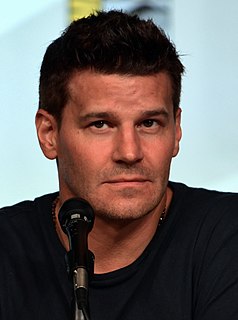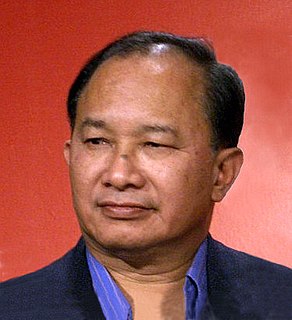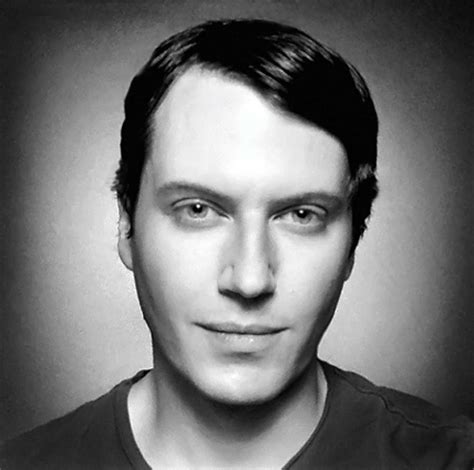A Quote by Cate Blanchett
I'm not interested in playing characters who see the world through my prism. I think the journey of understanding any character is to see how they tick and how they differ from you.
Quote Topics
Related Quotes
As an actor playing a character, you look for all of those avenues to see if there's any sense of vulnerability or love that you can bring to a character, and decide how that's portrayed and how that's going to be a struggle with the other characters. It's your job to take that on and challenge yourself, and meet that head on and see what happens with it.
Remember, folks, every one of these Republicans in Senate sees the world through the eyes of the left. Every one of these Washington people. They don't see it through the prism of their own principles and beliefs. They see the world through the eyes of the left. They see the media criticism that will be forthcoming. They see the newspaper headlines. They see what's gonna be said about them on CNN and New York Times. That's what they see. That's their world.
Any script, even like The Founder, if it's something that I imagine myself playing this character or that character - any of the characters, basically - how do we flesh these characters out to be good enough to have amazing actors that come in that make it really difficult for them to say no? Even though I'm not right for any of those parts, that's just kind of how we go about it.
In 'Chappie,' you see this sort of young robot that's learning through maybe 'deep learning' how to see the world really, look out into the world, and learn step by step. What's so interesting is that with 'Chappie,' you're getting to see how human behavior reacts to artificial intelligence, and I don't think it's always going to be positive.
Don't think about how your characters sound, but how they see. Watch the world through their eyes - study the extraordinary and the mundane through their particular perspective. Walk around the block with them, stroll the rooms they live in, figure out what objects on the cluttered dining room table they would inevitably stare at the longest, and then learn why.
I think we create our world through stories. We use storytelling to escape or protect ourselves from the unimaginable and the horrible - from the real, in a way. It's like white light - if you put everyday reality through a prism you get this rainbow of colors that you couldn't see before. I'm interested in exploring the world to show the things that are invisible. And not just undocumented aspects of reality, but to actually make manifest things that have been hitherto invisible through the intervention of filmmaking.
I have always looked at the world through the prism of money to some degree. If you could follow the money, it explains a lot of things, in all sorts of aspects of the world. You can look at politics through the prism of money. You can look at art through the prism of money. You can look at sports through the prism of money.
We liked the idea of introducing the audience to the world, and to show how much they had accepted or were confused by it. It was gratifying to see the people who embraced it immediately and understood it and got into it. They have tracked the characters through the six episodes, so it felt that now we can launch into the journey element of it. And really explore more of the Badlands.
It is good that the window should be transparent, because the street or garden beyond it is opaque. How if you saw through the garden too? It is no use trying to 'see through' [everything]. If you see through everything, then everything is transparent. But a wholly transparent world is an invisible world. To 'see through' all things is the same as not to see.
If you see the intersection of time and space, you experience complete freedom of being. This state of existence is completely beyond any idea of time, space, or being. In that liberated state you can see fundamental truth and the phenomenal world simultaneously. That is called Buddha's world. That is the place where all sentient beings exist, so you can stand up there and see all beings, myriad beings. Then you know very clearly, through your own emotional and intellectual understanding, how all beings exist.
If Trump does not start seeing things through an ideological prism, he will never understand the method, the motive, and the how and why these attacks against him happen. He doesn't see liberalism, and because he doesn't see liberalism, he can be outfoxed by it every day. He's not an ideological person.

































